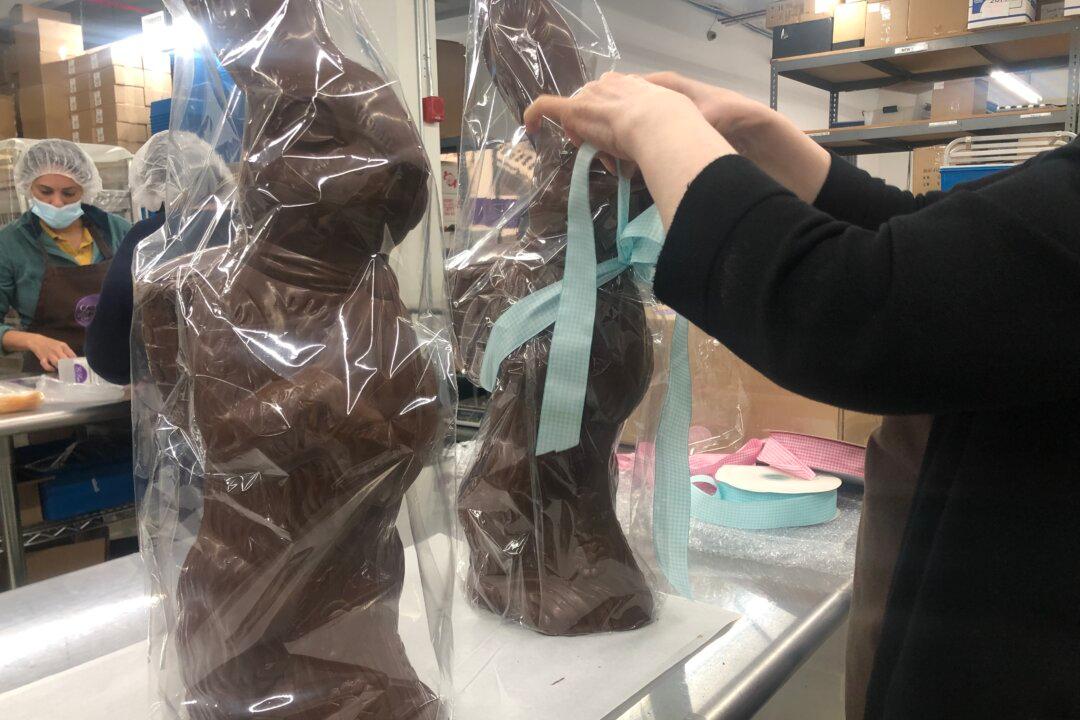Li-Lac Chocolates, New York City’s oldest surviving high-end boutique chocolatier, discussed the impact of the pandemic and recent supply chain snarls on business in an interview with The Epoch Times, as millions of Americans get ready to buy candy for their families this Easter.
Christopher Taylor, CFO of Li-Lac Chocolates, said that his company managed to pull through the pandemic in time for the profitable 2022 Easter season. He warned, however, that the recent global cocoa bean shortage poses a threat to prices, availability, and profitability.





